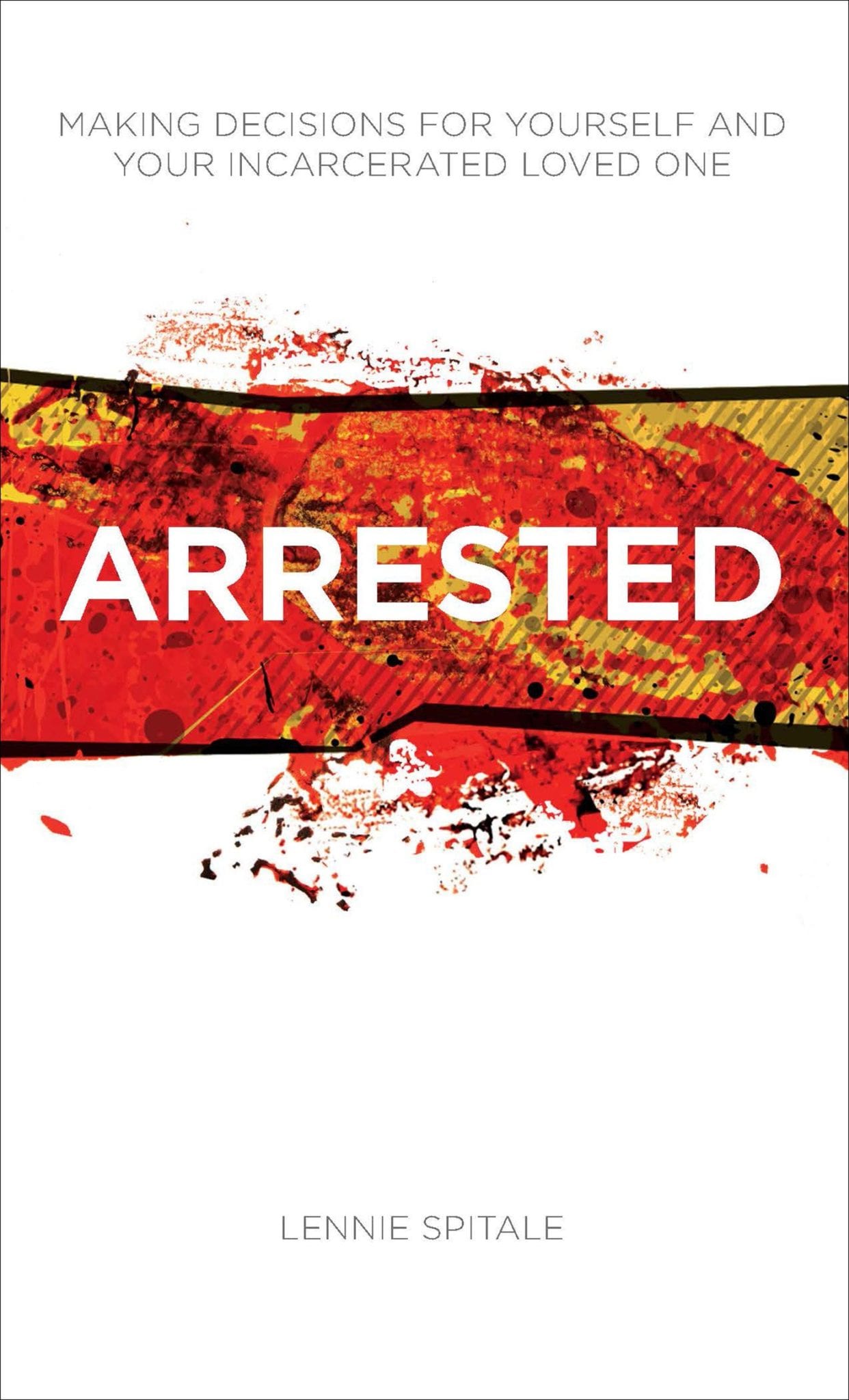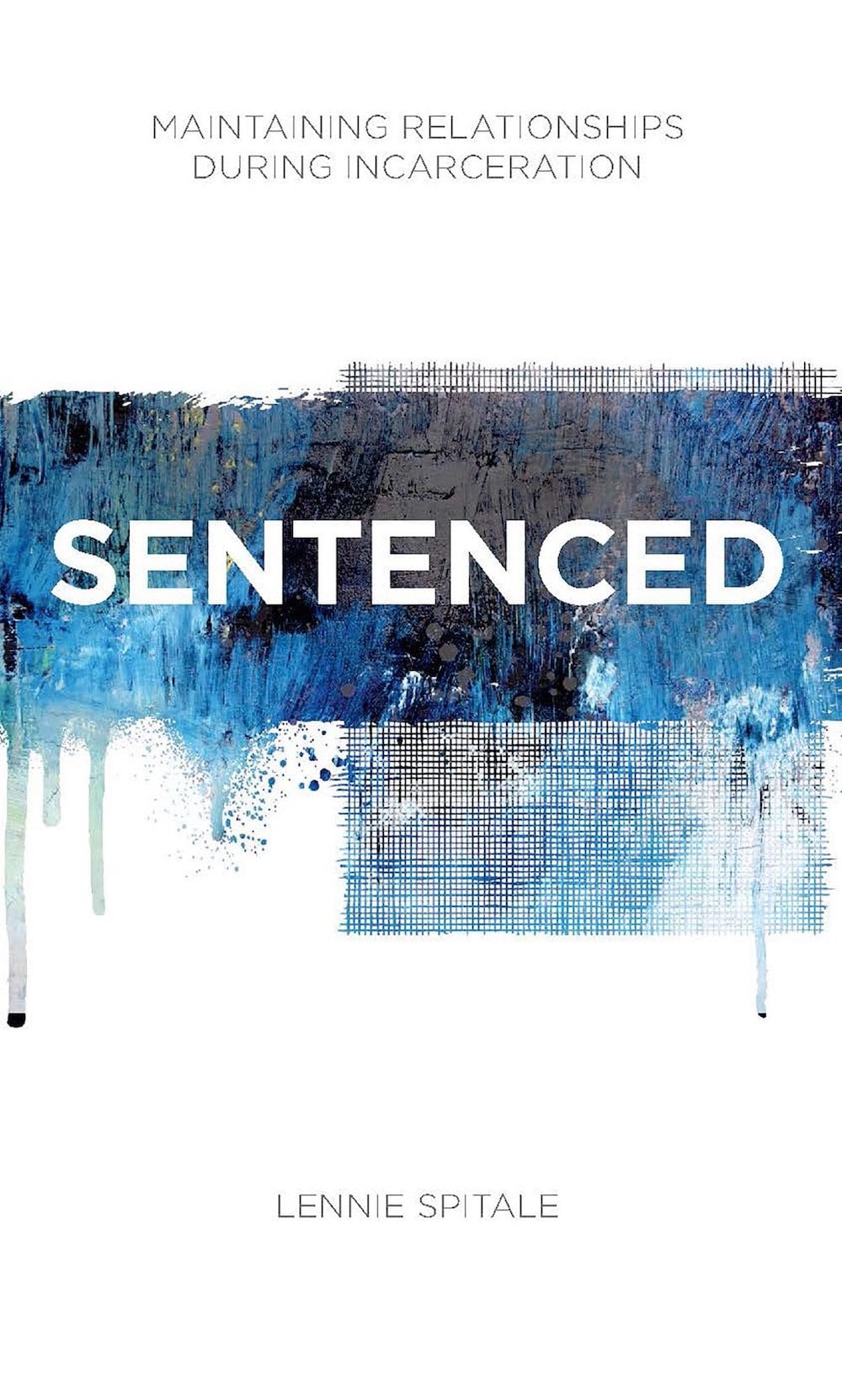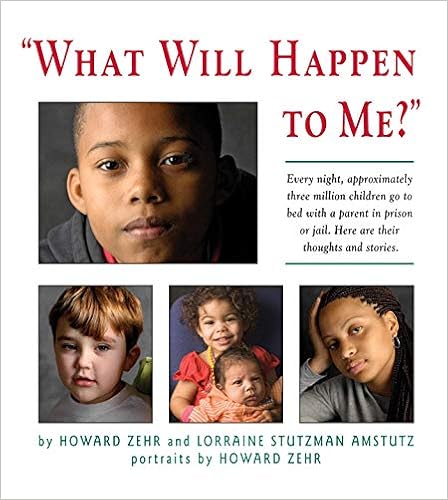Children & Family
The incarceration of an individual often overlooks the children and family that they may leave behind. As people who work and volunteer in the correctional ministries sphere, it is important to acknowledge that the inmate’s children and families often need assistance with dealing with the family member being away.
Family Handbook for State Prisons
Recommended Books for the Families
 In the midst of overwhelming emotions, it can be difficult to face the reality of your loved one’s arrest. Although a natural response is to reach out and help, fear, pain, and uncertainty can often get in the way. In this booklet, Lennie Spitale offers suggestions to guide you through the process of dealing with the sudden incarceration of a family member or friend.
In the midst of overwhelming emotions, it can be difficult to face the reality of your loved one’s arrest. Although a natural response is to reach out and help, fear, pain, and uncertainty can often get in the way. In this booklet, Lennie Spitale offers suggestions to guide you through the process of dealing with the sudden incarceration of a family member or friend.
 Communication can be challenging in any relationship. And when one of those people is behind bars, the challenge can seem overwhelming. But it can be done. As a former prisoner, Lennie Spitale writes from firsthand experience, sharing practical ways to protect and build relationships during incarceration. He understands the challenges and explains the ins and outs of prison life to help those who are navigating this world for the first time. The greatest pain of incarceration is separation from your loved one—but with understanding and effort, you can nurture your relationship throughout.
Communication can be challenging in any relationship. And when one of those people is behind bars, the challenge can seem overwhelming. But it can be done. As a former prisoner, Lennie Spitale writes from firsthand experience, sharing practical ways to protect and build relationships during incarceration. He understands the challenges and explains the ins and outs of prison life to help those who are navigating this world for the first time. The greatest pain of incarceration is separation from your loved one—but with understanding and effort, you can nurture your relationship throughout.
 This edited volume considers the impact of incarceration on the African American community and the biblical mandate for an intentional response from the church. The book features model ministries that address incarceration, prisoner reentry, and the care of their families and includes strategies for a political advocacy ministry around issues in criminal justice reform. With contributors who include scholars, ministry practitioners, pastors, and formerly incarcerated individuals, this unique resource offers a paradigm for prisoner ministry that goes beyond traditional worship and Bible study programs to create an authentic relational encounternot only with prisoners but with their families, from the time of incarceration to the transition back into home, church, and society.
This edited volume considers the impact of incarceration on the African American community and the biblical mandate for an intentional response from the church. The book features model ministries that address incarceration, prisoner reentry, and the care of their families and includes strategies for a political advocacy ministry around issues in criminal justice reform. With contributors who include scholars, ministry practitioners, pastors, and formerly incarcerated individuals, this unique resource offers a paradigm for prisoner ministry that goes beyond traditional worship and Bible study programs to create an authentic relational encounternot only with prisoners but with their families, from the time of incarceration to the transition back into home, church, and society.
Ministry with Prisoners & Families: The Way Forward
by W. Wilson Goode Sr. (Author), Charles E. Lewis Jr. (Editor), Harold Dean Trulear (Editor)
Resources for Families
Strengthening & Maintaining Family Connections: Best Practices for Child-Friendly Video Visiting
This document by the Bureau of Justice Assistance outlines 12 best practices for video visiting. Video visiting has enabled incarcerated parents across the country to be involved in their children’s lives in meaningful ways that bridge physical separation, such as participating in parent-teacher conferences, attending dance recitals and graduations, choosing outfits for prom and other events, and interacting in children’s everyday play. Adhering to best practices is crucial to ensure that these visits meet the needs of incarcerated parents and families.
Parents Behind Bars–What Happens to Their Children?
Children do not often figure in discussions of incarceration, but new research finds more than five million U.S. children have had at least one parent in prison at one time or another—about three times higher than earlier estimates that included only children with a parent currently incarcerated. This report by David Murphey & P. Mae Cooper, published by Child Trends, Inc., uses the National Survey of Children’s Health to examine both the prevalence of parental incarceration and child outcomes associated with it .Access the link to the document here >>
Model Practices for Parents in Prisons and Jails
The objective of this report by the National Institute of Corrections and Bureau of Justice Assistance is to detail a set of practices that correctional administrators can implement to remove barriers that inhibit children from cultivating or maintaining relationships with their incarcerated parents during and immediately after incarceration. These practices also involve children’s co-parents and caregivers. Access the link to the document here >>
Loving Your Children From Right Where You Are
This article is written by Karla Winterfeld who is currently incarcerated. The article describes her desire to continue her relationship with her young children and the steps she takes to creatively communicate her love to them. CMCA received permission from Karla to share the article.
Parent-Child Visiting Practices in Prisons & Jails
This report by the Urban Institute presents key findings on what is known about the design, impelemetation and effectiveness of parent-child visits. In summary, previous research and interviews with experts suggest that parent-child visiting is neither innately harmful nor therapeutic. A confluence of family dynamics and systematic issues determines whether visits mitigate or exacerbate the separation and trauma a child experiences when their parent is incarcerated.
Promising and Innovative Practices for Children of Incarcerated Parents: Arrest through Pre-Adjudication [Webinar]
“Nearly three million children under the age of 18 have a parent in jail or prison, and millions more have experienced their parents being arrested. Due to their parent’s criminal justice involvement, a growing body of research indicates that these children often experience trauma, family disruption, and the loss of their primary caregiver, which can lead to financial hardship, residential instability, and an array of emotional and behavioral problems. In response, several community-based organizations and government agencies across the country have implemented programs and practices aimed at reducing this trauma and mitigating the potentially harmful outcomes associated with parental criminal justice involvement. The Urban Institute and the National Institute of Corrections hosted a live webinar highlighting these promising and innovative programs and practices.”
The Reentry Myth Buster/Children of Incarcerated Parents Series
Series of fact sheets intended to clarify federal policies that affect formerly incarcerated individuals and their families. On any given day, nearly two million children under 18 have a parent in prison, and many more have had an incarcerated parent at some point during their childhood. Children of incarcerated parents often face financial instability, changes in family structure, and social stigma from their community. This series is designed to help these children, their caregivers, and the service providers who work with them.
Mentoring connects Children with incarcerated Parents with Support |PBS|
“More than 5 million children in the U.S. have had a parent in prison at some point. In Indiana, where that number is 177,000, a mentoring program aims to bolster support for those children by connecting them with adults who can provide emotional support. Megan Thompson reports as part of an ongoing series of reports called “Chasing the Dream,” which reports on poverty and opportunity in America.”
Bill of Rights for Children of the Incarcerated (complete 15 page document)
Complete list and explanation of the eight rights Children of the Incarcerated have while their parents or guardian are incarcerated. It gives the list of realities and what to expect as well as statistical information on what happens to some children as well as who looks out for them.
Guidebook for Families and Friends of the Incarcerated
General guidelines on what the different kinds of prison systems there are. Along with general guidelines on procedures such as: How to find the inmate, how to send the inmate mail along with what is allowed, rules for phone calls, visiting policies and procedures (every facility may differ), visiting room rules (every facility may differ), what do do in case of emergencies, how to add money to commissary (every facility may differ), and the difference in Juvenile court systems and adult.
Every Second: The Impact of the Incarceration Crisis on America’s Families
On any given day, there are more than 1.5 million people behind bars in state or federal prisons in the United States. Admissions to local jails have exceeded 10 million each year for at least the past 20 years. These figures are staggering, but the long reach of incarceration extends well beyond the jail and prison walls to the families on the other side.
Parents in Prison and Their Minor Children: Survey of Prison Inmates 2016 This report released in March 2021 by the Department of Justice, Bureau of Justice Statistics indicates that approximately 684,500 state & federal prisoners were parents of at least one minor child in 2016. About 47% of males and 58% of females in state or federal prison were parents of minor children
Recommended Books for Children of the Incarcerated

What Will Happen to Me?
Authors Howard Zehr and Lorraine Stutzman Amstutz tell sobering stories of what happens to children of the incarcerated. The authors tell a sobering tale of the realities that almost three million children have to face due to a parent or sometimes both parents being incarcerated.

A Day I’ll Never Forget by Dana L. Cunningham.
Do you work with children who have a loved one incarcerated? This book provides a person of color’s perspective. The story and discussion questions provide an opportunity for children to process their feelings about incarceration. This book is ideal for children ages 10 and under.
Resources for Children of the Incarcerated
Project Avary is a national online community of support for children impacted by the incarceration of a parent or loved one. The support groups are free, fun, and everyone involved has been impacted which provides an instant judgement free zone. These groups have become a safe space for many youth to talk about their experience for the first time.
Parent-Child Visiting Practices in Prisons & Jails
This report by the Urban Institute presents key findings on what is known about the design, implementation and effectiveness of parent-child visits. In summary, previous research and interviews with experts suggest that parent-child visiting is neither innately harmful nor therapeutic. A confluence of family dynamics and systematic issues determines whether visits mitigate or exacerbate the separation and trauma a child experiences when their parent is incarcerated.
Scholarships for Children with Incarcerated Parents:
A list of seven organizations that plan to give scholarships specifically to Children with Incarcerated Parents.
Incarceration’s Impact on Kids and Families:
As the overuse of jail becomes more common—although the majority of people are held there pretrial and presumed innocent—its growing impact extends to the children, families, and communities outside its bars, people who must also manage the financial, economic, and emotional effects.
Tip Sheet for Incarcerated Parents:
Planning for a Visit from Your Child/Children Visitation can be an important and meaningful experience for incarcerated parents and their children, but it can also be a source of stress and anxiety when parents’ or children’s expectations do not align with what ends up happening. Many aspects of visitation are outside of the control of an incarcerated parent, but there are things you can do to anticipate problems and reduce stress to make visitation a positive and beneficial experience for everyone involved. Below are things to consider when planning for a visit from your child. If you do not know the answer to a question, think about who in your facility you can ask for an answer such as other incarcerated parents, volunteers, or facility staff. Even if you cannot find the answer to a particular question or if you think it could affect the visit, make sure your child’s caregiver is aware of the issue.
Guide for Incarcerated Parents Who Have Children in the Child Welfare System: Children of Incarcerated Parents Parent Guide, Reentry Myth Buster fact sheet
Parents guide to the facts about the care of your child in the welfare system while incarcerated. Also gives resources that are available to you as a parent for your child as well as contact information for your State’s Child Welfare Agency Contact Information
CMCA Members Exclusive Content
If you wish you may join CMCA now to receive access to the Members section.
The following titles are available for CMCA Members only.
- A Review of Research on the Likelihood of Children with Incarcerated Parents Becoming Justice Involved
- When a Parent is Incarcerated (primer)
- Children and Families of the Incarcerated Fact Sheet
- National Resource for Children of Incarcerated-Fact Sheet
- The Ultimate Guide for Connecting with Your Child (for fathers)
- Involving Families in Care Planning
- Tips for Incarcerated Parents
- The True Cost of Incarceration on Families
- Ministry with Families of the Incarcerated
